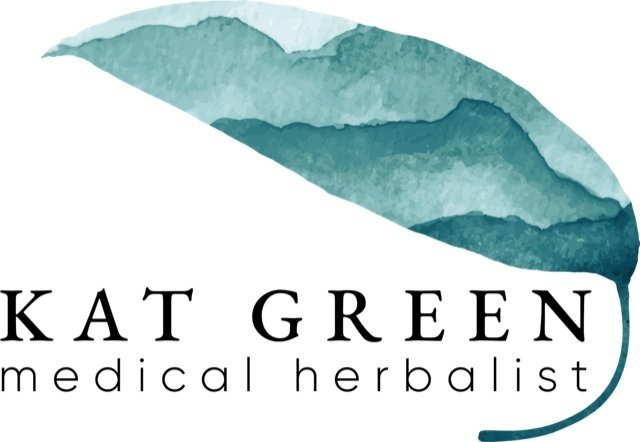Kat Green - Your local NIMH medical herbalist in Leeds
Hello and welcome.
I’m a fully qualified medical herbalist based in Leeds with a particular interest in chronic health imbalances. The common health challenges I work with are gynaecological issues, allergies, anxiety, asthma, eczema, sleep issues, headaches, irritable bowel syndrome and autoimmune conditions as well as seasonal health issues such as colds and flu or hay fever.
Practitioners such as myself, are registered with the National Institute of Medical Herbalists (NIMH), which is subject to completion of a four-year, degree-level qualification and 500 clinical hours. I trained at Heartwood and passed with distinction; the UK’s leading educator for professional western herbal practitioners, benefitting from access to a large network of internationally renowned herbalists. NIMH registered herbalists are trained in anatomy, physiology, pathophysiology and nutrition and hold BSc degrees or equivalent.
I believe people can get better, naturally – even those who may have given up after years of struggling with their health or who simply tolerate their symptoms. Common complaints such as debilitating periods or depleted energy levels can stop us doing the things we love in life. Often, these complaints are considered normal and we learn to live with them. But this can change. Chronic illness can be managed to a point of good health and vitality, using herbal medicine - and a little time and dedication to restoring health fundamentals.
My garden practice in Horsforth offers a friendly, welcoming environment and convenient location to support patients in Leeds and surrounding suburbs. Online appointments can be made for those further afield and follow-up consultations.
Websites are great, but sometimes it’s easier to speak to someone, especially if you have specific questions. Whether you want to know more or book a consultation, you can find my contact details by clicking here.
Herbal medicine
Herbal medicine harnesses bioactive constituents in plants to gently nudge the body into a healing process.
Often referred to as the origin of modern medicine, many conventional medications, old and new, are developed from specific plant constituents. Some examples include cancer treatments vinblastine and vincristine from rose periwinkle, aspirin from salicylic acid in willow bark and artemisinin from sweet wormwood to treat malaria.
To read more about herbal medicine and the role of a registered herbalist, click here.
Your questions
If you’re not familiar with herbal medicine, understanding a little more about what it entails can be helpful ahead of your consultation. It also ensures we use the time available in your consultation to focus on you.
To know more about what herbal medicine can treat, how it works or if it can be used alongside conventional medications click here for some frequently asked questions.
Your consultation
Your initial consultation is usually an hour in length, giving us time to look beyond the symptom to understand the ‘whole you’ and identify contributors to root cause.
Many things affect your wellbeing. To quote Hippocrates “It is more important to know what sort of person has a disease than to know what sort of disease a person has.”
To read more about the consultation and what to expect, click here.
After your consultation, we’ll discuss therapeutic recommendations. This may include herbal medicines, nutritional supplements, diet or small lifestyle suggestions.




